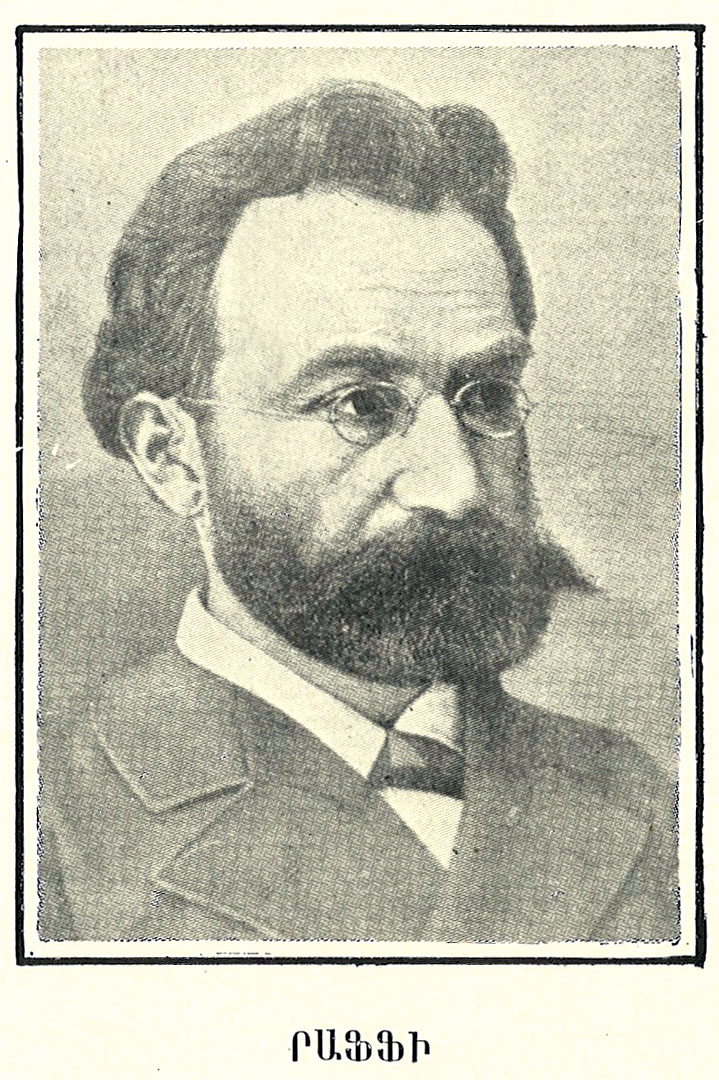The Armenian Studies Program Library has many books written by the 19th century Armenian author, Hakop Melik Hakobian, better known by his pen name, Raffi. Born in 1835 to a local nobleman in a Persian province, Raffi was instilled with a tremendous appreciation for learning (“Raffi: A Biographical Sketch,” Asbarez, April, 2023). Engulfing himself in his studies, Raffi embraced his motto, “whoever does not know his homeland cannot truly love it.” Through his works, Raffi imparted a sense of pride and self-respect to the Armenian people during tumultuous periods of foreign rule.
David Arakelyan, in the Asbarez article, said “it is difficult to imagine modern Armenian literature or our people’s liberation struggle without the man whose works have laid the foundation of the Armenian novel and provided the ideological underpinnings of the national revolutionary movement.”
One of Raffi’s novels, Kaytser, written in 1879, was influenced by a growing presence of Ar-menian revolutionary activism following the Russo-Turkish War. The novel’s main characters aim to unite the Armenian people by emphasizing the importance of learning about one’s country and its population.
They also stress the need to forge alliances and organize a network of agents to assist in their liberation effort.
Raffi’s next novel, Davit Bek, was written in 1882. Realizing the ineffectiveness of relying on foreign support to aid in Armenia’s liberation struggle, Raffi used this novel to advise Armenians to wait until a convenient opportunity to strike back against foreign enemies.
When the opportunity presents itself, the Armenian people should be led by a leader who could rally the nation to form a unified front. The novel’s main character, Davit Bek, modeled the ideal leader. He symbolized the new Vartan Mamikonian. Through Davit Bek, Raffi spread the message of self-defense and self-reliance.
Kaytser and Davit Bek are among Raffi’s novels cataloged in the ASP Library. Additional titles include, Khente, Samuel, and Tachkahayk.
Raffi is a revered Armenian author centuries after his death in 1888 because his ideals of national unity and self-preservation live on in the Armenian people today.
https://cah.fresnostate.edu/armenianstudies/resources/library/index.html




